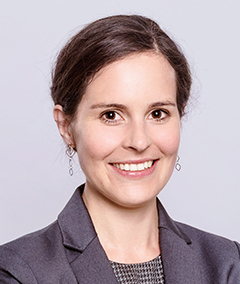The conference is organised annually by the Faculty of Economic Sciences of the University of Warsaw in cooperation with the Center for Economic Analysis (CenEA). The keynote lectures were given by: prof. Orazio Attanasio (University College London and Institute for Fiscal Studies) – Human Development: Theory, Interventions and Measurement, and prof. Ariel Rubinstein (Tel Aviv University and New York University) – Games, Response Time and Typologies of Players.
Five of the IBS economists took part in the conference. Below we publish the main messages from their research and the respective presentations.
Delegation as a signal: implicit communication with full cooperation

Joanna Franaszek presented a principal-agent model of communication with perfectly aligned preferences and severe language frictions in the context of doctor-patient relationship. She demonstrated that when language is limited, a novel channel of communication may arise. In particular, the patient’s decision to delegate the choice of treatment to the doctor becomes a signal of his unobservable preferences. The doctor, upon observing delegation and the patient’s health, not only correctly infers the patient’s preferences, but also adjusts his decision to the patient’s needs. Thus, the final treatment becomes non-monotone in health. (The research was conducted at the European University Institute)
Does unauthorised digital distribution of comic books displace sales?

Wojciech Hardy showed his research on e-readership of comic books in an international sample of comics fans. His results show that the so-called online ‘piracy’ has become an issue also for the comic book industry. At the same time, the experimental part of the study shows that it is very difficult to incentivize the readers to switch to authorized digital sources – even if they’re presented with free titles from such services. The potential explanation for this is that comics readers very rarely decide to switch comics formats mid-series and prefer to read whole series in one format. (The results was also presented at the 20th International Conference on Cultural Economics (Melbourne, 26-29.07.2018).
The “Family 500+” child allowance and female labour supply in Poland

Aneta Kiełczewska presented a joint work with Iga Magda (IBS) and Nicola Brandt (OECD). She showed that labour force participation rate for mothers of one and two children might have been on average 2.4 pp higher in the absence of the 500+ benefit. Such an effect is observed for the first year after the introduction of the programme and it strengthened after half a year. The reaction among mothers with lowest educational level was the biggest. The results has been publishes in the IBS Working Paper.
Does personality impact the returns to cognitive skills?

Marta Palczyńska talked about her study on the relationships between cognitive skills, personality traits and wages. The results show that personality matters for the individual wages in Poland. Employers reward conscientiousness while neurotic and agreeable individuals earn less. Moreover, neurotic individuals have lower returns to cognitive skills. There are no gender differences in the effects of personality on wages.
Are gender wage gaps different in size between domestic and foreign-owned firms?

Katarzyna Sałach presented the study conducted together with Iga Magda. It turns out that adjusted (“unexplained”) gender wage gaps are significantly higher in foreign-owned firms, compared to domestic ones, especially among these firms that entered the market after the economic transition. What is more, adjusted gender wage gaps in foreign-owned firms are distinguishingly large mainly among better paid workers. For those with the lowest earnings the biggest adjusted gender wage gaps are observed in domestic firms, but the differences between the types of firm ownership are rather small, mainly due to the existence of minimum wage.


